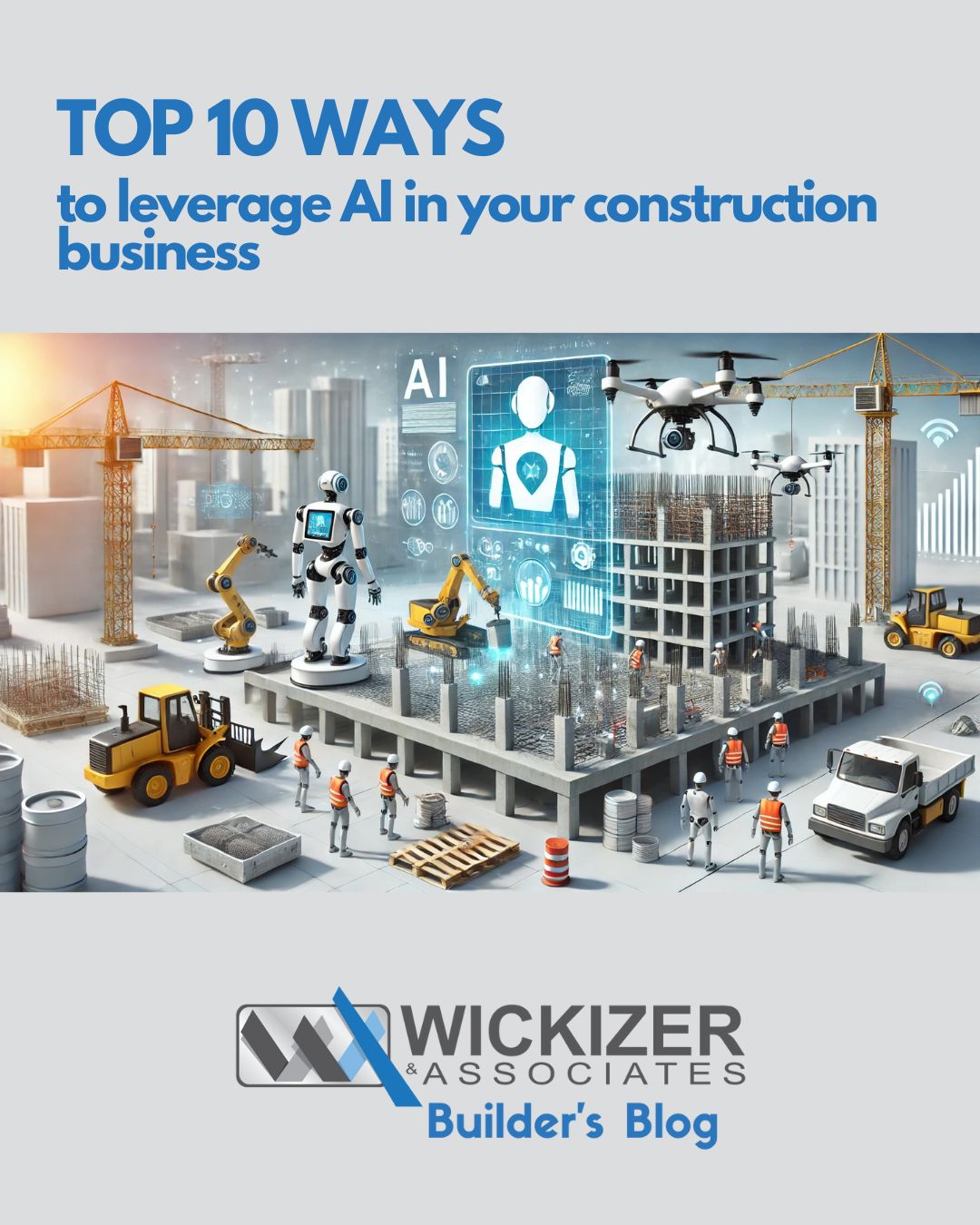
The building industry has been historically slow to adopt new technology. Yet, as competition increases, we are pushed to adopt new products, new ideas and new technology to remain profitable and competitive. Artificial Intelligence (AI) or Large Language Models (LLM) as it exists today is technology we can’t ignore. It is a technology wave on the scale of the internet. If we don’t embrace AI, we risk being left behind by those who utilize AI as a core tool, like a skilled framer uses his hammer.
As an entrepreneur myself, I have been resistant to learn and adopt AI. It’s a bit scary and it began a bit “clunky” but AI is evolving rapidly and getting more useful. The most recent version of ChatGPT now includes a voice interface, like Siri but much, much smarter. I am beginning to “converse” and work with AI to:
- Brainstorm and refine ideas
- Search for new prospective customers
- Check on new code adoptions
- Help write copy
- And so much more
How can AI help you in building your contracting business? Below are the top 10 ways AI can help you. (I used AI to procure this information):
1. Smart Project Management
- Use AI tools to predict project timelines and budgets based on historical data.
- Automate scheduling by analyzing workforce availability, material delivery times, and weather forecasts.
2. Construction Design Optimization
- Employ generative design AI to create multiple project designs based on constraints like budget, space, and material availability.
- Enhance collaboration with AI-driven Building Information Modeling (BIM) for real-time updates and coordination.
3. Predictive Maintenance
- Use AI-powered sensors to monitor equipment health and predict when repairs are needed, reducing downtime and avoiding costly breakdowns.
4. Safety Monitoring
- Implement AI-driven video analytics to identify potential safety hazards on construction sites.
- Use wearable AI devices to monitor workers’ health metrics and environmental risks like temperature or toxic gas exposure.
5. Cost Estimation and Bidding
- Leverage AI algorithms to analyze past projects and market data for accurate cost estimation.
- Automate the bidding process by generating competitive and realistic proposals.
6. Material and Inventory Management
- Use AI to predict material usage trends and ensure optimal stock levels, reducing waste and costs.
- Integrate AI systems with supply chain management to automate ordering and delivery scheduling.
7. Construction Robotics
- Implement AI-guided robotics for repetitive tasks like bricklaying, concrete pouring, or painting, increasing efficiency and precision.
- Enhance productivity by integrating robots with AI for autonomous operations.
8. Energy Efficiency and Sustainability
- Use AI to analyze energy consumption and suggest improvements for greener construction methods.
- Optimize designs for sustainability using AI simulations for airflow, lighting, and material efficiency.
9. Site Inspection and Progress Tracking
- Deploy drones equipped with AI for aerial inspections and real-time progress tracking.
- Use AI to analyze photos and videos from job sites to detect discrepancies from project plans.
10. Client Communication and Customization
- Use AI chatbots or virtual assistants to keep clients informed about project progress.
- Analyze client preferences using AI to offer tailored recommendations for design, materials, or finishes.
Bonus: Staying Ahead
- Invest in AI-powered analytics to predict industry trends and adjust strategies accordingly.
AI offers transformative opportunities for building contracting companies, enabling them to optimize processes, reduce costs, and enhance project outcomes. By leveraging AI, contracting companies can stay competitive, deliver higher-quality projects, and meet client expectations with greater precision and efficiency.
Let me know if you’d like to explore any of these in detail!

